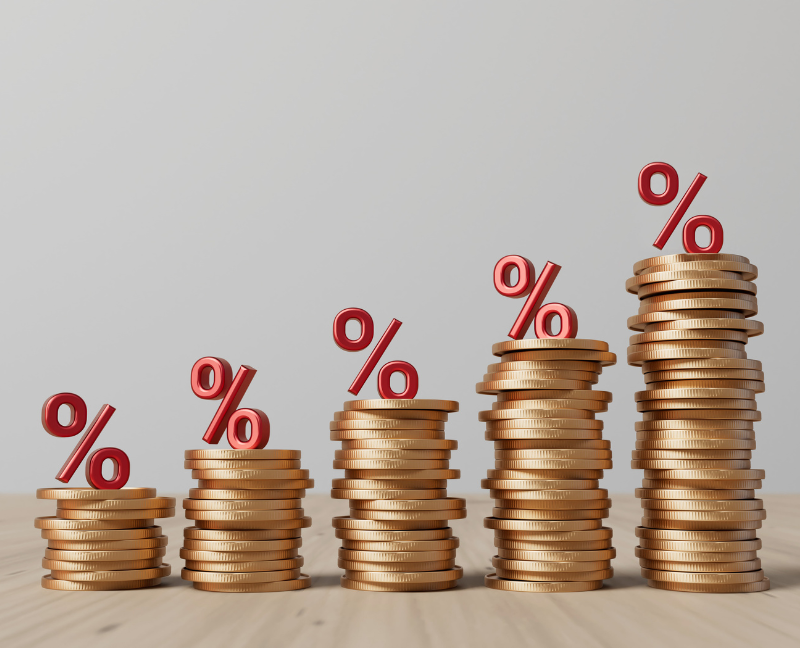When buying a home, two of the common terms you might hear a lot are "Annual Percentage Rates (or APR for short)" and "Interest rates." Now, while these two might sound like they mean the same, the truth is, there are a few differences that you should know.
So before you get a mortgage, let's learn how:
- interest rate and APR work
- to calculate APR and interest rate
- to compare different lenders
How Does Interest Rate And APR Work?
First thing first, let's learn what these two terms are.
Your interest rate is what you pay a lender when you borrow money for a set amount of time. The mortgage interest rate may be fixed throughout the loan or may vary with market rates. It is always expressed in percentages.
On the other hand, an Annual percentage rate (also known as APR) is the total amount of money you pay for a loan, which includes the interest rate plus any other costs and fees that come with the loan, like private mortgage insurance (PMI), prepaid interest, some closing costs, mortgage points (also known as discount points), and other possible fees.

How To Calculate APR And Interest Rate?
Your APR is less under your control. Broker and origination fees are other variables that your lender controls and affect your annual percentage rate.
By paying 20% down, you can avoid private mortgage insurance, but comparing lenders is ideal. Loan plans and APR rates should be compared.
Your lender uses personal data to calculate interest. None of them utilizes the same interest formula although some mortgage lenders provide ten interest rates.
Meanwhile, banks consider market interest rates and real estate economy conditions while computing your rate. Your mortgage lender can cut your interest rate in ways. Your rate will generally drop if you reduce your lender's risk.
To get better rates, you have to improve your credit score, a three-digit statistic that shows lenders how you use credit. If you have good credit, it means you pay on time and don't borrow more than you can afford.
Meanwhile, having low credit makes you riskier to lenders as it usually means you have a history of late payments, defaults, etc. As a result, you might get a higher interest rate from a lender or might not get approved at all. VA, FHA, and USDA loans can cut your interest rate.
A federally insured loan will reimburse your lender if your home is foreclosed. The interest rate on a government-backed loan may be lower than on a traditional loan. Remember that mortgage insurance will affect your payment, so consider all your options.
How Do Interest Rates and Annual Percentage Rates Differ?
Interest rates are the annual cost of borrowing money whereas APR includes additional expenses. Your APR will be larger than your interest rate because it has interest and other loan expenses.
Your effective interest rate can also be considered your annual percentage rate (APR). Be sure to take into account both the interest rate and the APR while selecting the mortgage loan that is most suitable for your needs.
The Bottom Line
Your APR comprises your interest rate and any other costs or fees you may be required to pay your lender. Your interest rate is the percentage of interest you pay on a loan. Discount points, private mortgage insurance, and brokerage fees are a few of the most popular extra costs. Your annual percentage rate (APR) represents the real interest rate you will pay on your loan after you get it.
Before a loan closes, the lender must disclose to you both the interest rate and the annual percentage rate. By maintaining your credit score and, potentially, selecting a government-backed loan, you can reduce your interest rate. Nevertheless, since the lender determines a lot of these fees, you need more control over your APR. That being stated, comparing comparable loan programs offered by other lenders is the greatest approach to getting a lower APR.
Learn more about mortgages here.

